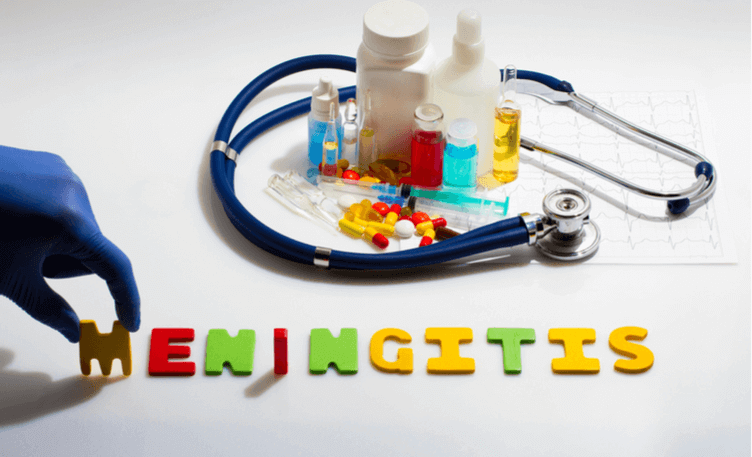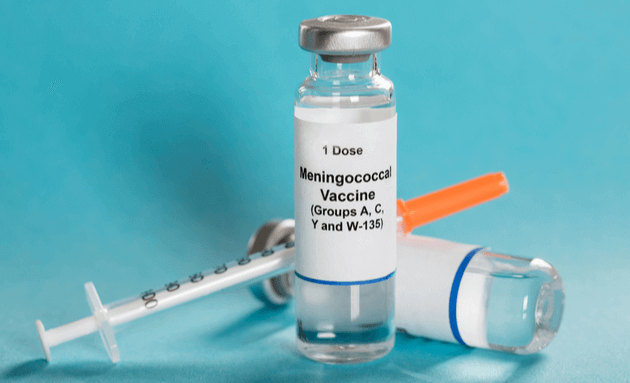Meningitis In Children

Meningitis is a disease in which the meninges (membranes) that cover the brain and spinal cord get inflamed. The function of the meninges is to protect the Central Nervous System (CNS) against any kind of external trauma. The meninges also produce cerebrospinal fluid that nourishes CNS tissues, circulate nutrients and get rid of waste products. With these roles to play day in and day out, the meninges, once infected, can fail to function efficiently.
According to the Medindia Review Team, a total of 16,217 meningitis cases were reported in 2014-15 in India. Children are at a higher risk of suffering from meningitis as compared to adults.
Symptoms and Effects
If your baby or child is suffering from Meningitis, getting prompt treatment is the need of the hour. The after-effects of meningitis, if not treated, may lead to physical disabilities and neurological problems. The child may suffer from lack of concentration and have trouble retaining information. Other effects can be headaches, hearing problems, challenges with hand-eye coordination (leading to clumsiness), vision and speech problems, weakness, and even seizures. Depending on its type, meningitis may also prove fatal if not treated immediately.
Types of Meningitis
The type of meningitis that may affect your child depends upon whether the disease is of bacterial or viral origin. Both types are infectious and can spread through touching, kisses, coughs or sneezes.
Bacterial meningitis, although rare, is potentially life-threatening as compared to viral meningitis. However, immediate treatment can eliminate the possible dangers of this disease. Bacterial meningitis can be caused due to a serious head injury, or even an ear or sinus infection. Viral meningitis is less severe but can be caused by common cold, cold sores, and diarrhoea.
Immediate Treatment for your Child during Meningitis

Firstly, if your baby is under three months and has a temperature of over 38ºC but with cold hands and feet, call your doctor. Check for a soft spot on your baby’s forehead which may be bulging. Your baby may show signs by being unusually sleepy.
The breathing rate of your child can also tell you whether they need immediate medical attention. Your child may breath very fast because he or she finds it difficult to breathe and makes grunting noises while breathing. They may feel very lethargic, weak and will find it difficult to stay awake. They may seem confused and irritable. Their neck may be stiff when trying to look up or down, and they may also suffer from seizures.
Further, their skin may look pale. Their tongue, lips, and sometimes skin too, may appear blue in colour. Your child may develop a rash. The best way to check is by pressing a glass against the rash. If the rash does not momentarily fade on the skin then this could be a sign of meningitis. Do this at least twice or thrice to be sure.
If your baby has not urinated for more than 12 hours, feels thirsty but is not able to keep fluids down and their vomit looks bloody or coffee brown in colour, you’ll know that it’s time to call the doctor.
Babies (three to six months) may show a lack of interest or not respond. They may shiver or shriek. They may have a dry mouth and won’t drink or feed on anything. They may vomit more than twice in a day.
Treatment for Bacterial or Viral Meningitis
If the child is suffering from viral meningitis, then the treatment process should last for no longer than 7 to 10 days. Your child will be given over-the-counter medication along with lots of fluids. They will need to get a lot of rest.
If it is the case of bacterial meningitis, the doctor will start with intravenous (IV) antibiotics. To replace lost fluids due to fever, sweating and vomiting, and poor appetite, the doctor will recommend giving your child lots of fluids.
To prevent meningitis, a vaccination schedule has been recommended for children aged 11 or 12 years old, including a booster dose at age 16. Recognising the signs and symptoms of this dangerous disease early on can help save your child.






